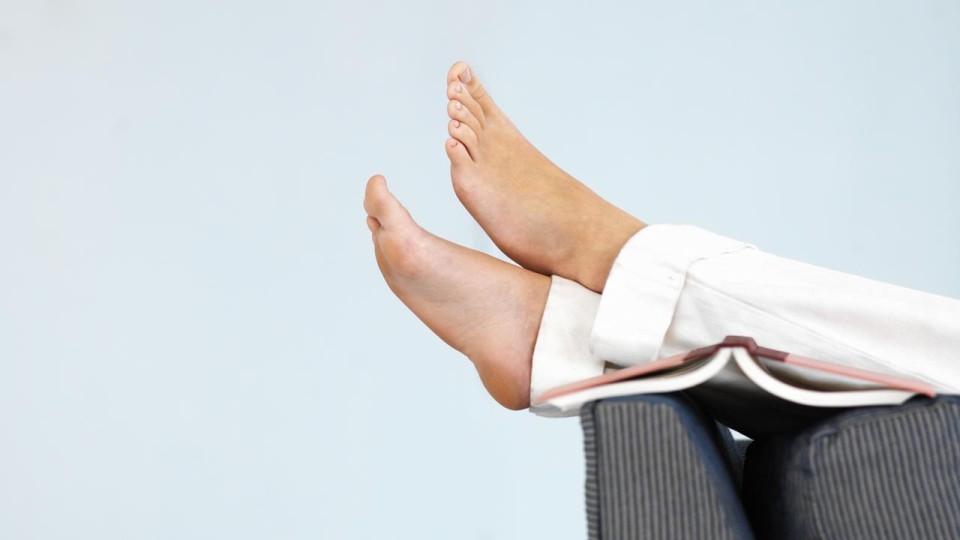Running is simple. All a runner really needs is a pair of shoes and a long stretch of ground to cover. Before and after the run, though, most people rely on nothing but common sense and standard advice to recover from the beating they put their bodies through.
Stretch. Warm up. Refuel. Rest. While there’s wisdom in those words, a runner needs more than common sense to see great improvement.
Many runners want to recover faster after a marathon, but not many know how to recover faster from running.
Here are eight tips that most runners don’t practice to recover from a run. Go through the running recovery tips and apply them after your next running race.
1. Recovery is an Active Part of Exercise
Just as a runner pushes his or her limits during a run; they must put maximum effort into recovery in order to see maximum results while running.
There’s more to it than just sitting on the couch and waiting for the next run. Even something as simple as taking the dog for a walk will aid recovery.
2. Static Stretching is Bad…Before the Run
Think of muscles as rubber bands. They shouldn’t be too tight or too loose. Use pre-run static stretching only on the hip muscles or to bring abnormally tight muscles back to normal.
Use dynamic stretches to get your body ready for a run.
3. Recovery Starts During the Run
A cool-down period should always be worked into the run in order to maximum the body’s recovery rate afterwards.
A body that goes from a high rate of work to a steady state in a short period of time won’t absorb nutrients as well.
4. Refuel With Purpose
A runner should pay attention to his or her own body and diet and adjust their post-run nutrition accordingly.
For example, if one eats more carbs than usual before the run, they might not need as many afterwards. Everybody is unique. Learning the basics of a running diet and then altering it to fit one’s personal needs is best.
5. Static Stretching is Good…After the Run
Static stretching may decrease performance before exercise but it can aid recovery by returning muscles to their natural state, allowing them to better absorb important nutrients and develop hardier muscle.
The effects will be greatest if one waits a few hours after the run to stretch.
6. Hit the Sack
The best and most efficient physical and mental recovery takes place while a person is asleep.
Lack of sleep will stall even the most dedicated runner’s progress.
7. Anti-Inflammatories are Bad
Many runners are tempted to take anti-inflammatories to counteract the effects of long runs but doing so consistently will hamper the body’s ability to recover on its own.
The best recovery is a natural one.
8. Rest Doesn’t Stall Improvement
Recovery is improvement. You can grow during recovery days by doing different kinds of running or exercise.
Some people can’t stomach the notion of taking a day off, but truly dedicated runners will take the time to develop a plan that helps them recover while they’re waiting for the next run. Simply put, recovery keeps the runs themselves pure.
Do you have a running recovery tip after completing a physical race or an online marathon? Share with us in the comments.
More Recovery Tips After Running
How do you recover faster after a race?
Hydration is imperative for post-run recuperation, as fluids help to re-fuel the body and reduce soreness. Combining proteins and carbohydrates after a run also promotes recovery, while avoiding toxins food can help circumvent fatigue. Finally, slowly decreasing your running pace and opting for lighter forms of exercise can aid in recovery. Additionally, regular stretching is an effective way to reduce muscle pain or discomfort.
Should I do a recovery run after a race?
After intense physical effort, it’s important to give the body a chance to recover. This is known as a recovery run, and can be used following a variety of different high intensity workouts. Doing so allows the body to recover quickly while improving fitness levels over time.
How to recover from running everyday?
It’s important to take time to recover from running everyday.
- Rehydrate and replenish electrolytes with a high-carb meal – this helps restore the levels of glycogen in your body.
- To speed up muscle repair, foam rolling post-run is recommended for myofascial release.
- Take some extra moments at the end of your workout for flexibility exercises such as stretching to increase range of motion (ROM).
- Don’t forget to get enough quality sleep in order for your body to properly heal.
- Be sure to include adequate protein intake with your carbohydrates – it helps reduce muscle protein breakdown and initiate synthesis.
How do I recover from running a lot?
For runners, it is essential to give the body adequate time to recover after running a marathon. Studies indicate that it takes around four weeks for the body to completely bounce back from the race. Failing to give yourself enough rest can lead to overtraining and injury, so be sure take at least one full week off before you begin running again.
What to avoid after running?
After running, there are several things you should avoid doing such as:
- Skipping your cool-down phase can tighten muscles and make it difficult to move normally the next day
- Not keeping yourself hydrated throughout the duration of your run and after
- Not having a post-run snack to refill your glycogen stores.
- Overindulge in food or beverages immediately following a run
- Forget to give your body adequate rest between workouts





